
10 Effective Ways to Improve as a Football Player
American Football International extends its gratitude to The Growth of a Game for this insightful article on how anyone can improve as an American football player. Special thanks to Travis Brody! Be sure to visit www.growthofagame.com for more fantastic resources.
As athletes, we constantly strive for improvement, no matter our skill level. One of the best aspects of American football—and sports in general—is the endless opportunity to push beyond our limits. The human body and mind can achieve extraordinary feats, and sports serve as a powerful outlet to channel growth into something positive and measurable.
Ready to take your game to the next level? Here are the Top 10 Ways to Become a Better Football Player:
1.Practice Makes Perfect
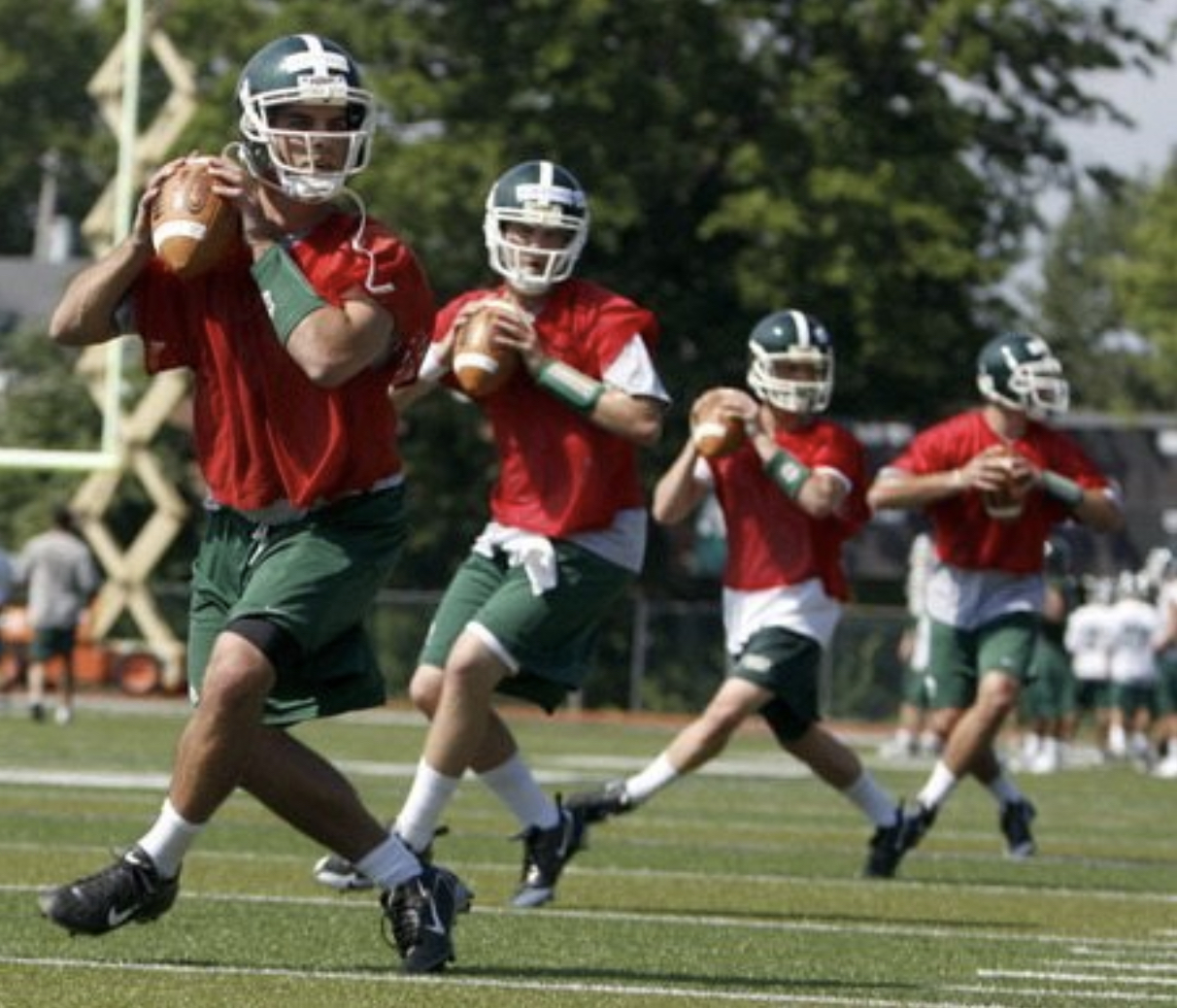
There are countless ways to elevate your game, but the most effective way is simply by playing your sport regularly.
Malcolm Gladwell, in his book Outliers: The Story of Success (Amazon: USA/UK/FR/ES/DE/IT), spent years researching the common traits among the world’s most successful individuals. His conclusion? Success in any field boils down to committing roughly 10,000 hours of practice to a specific task. This principle, known as the “10,000-Hour Rule,” is directly applicable to sports, including football, and can help you rise to the top.
By dedicating enough time on the field, you can become a standout player in your league, gaining the respect of your peers for your skill and dedication.
Here’s where you start: never miss a team practice.
Arriving early to practice for extra work not only gives you an edge over your competitors but also demonstrates to your coaches that you’re committed to improving and helping the team succeed. Beyond scheduled practices, you can meet up with teammates to work on essential skills such as catching, blocking, passing, covering, and tackling form.
If no one is available to practice with, find time to work on your own. Every position offers drills you can perform solo. Quarterbacks can focus on footwork, dropbacks, and scrambling. Receivers can practice their routes and release from the line. Linemen can refine their first move, footwork, and hand placement. Defensive backs can improve backpedaling and reaction time. And this is just scratching the surface.
The key question isn’t what you can practice, but how determined you are to improve.
2. Learn the Rules
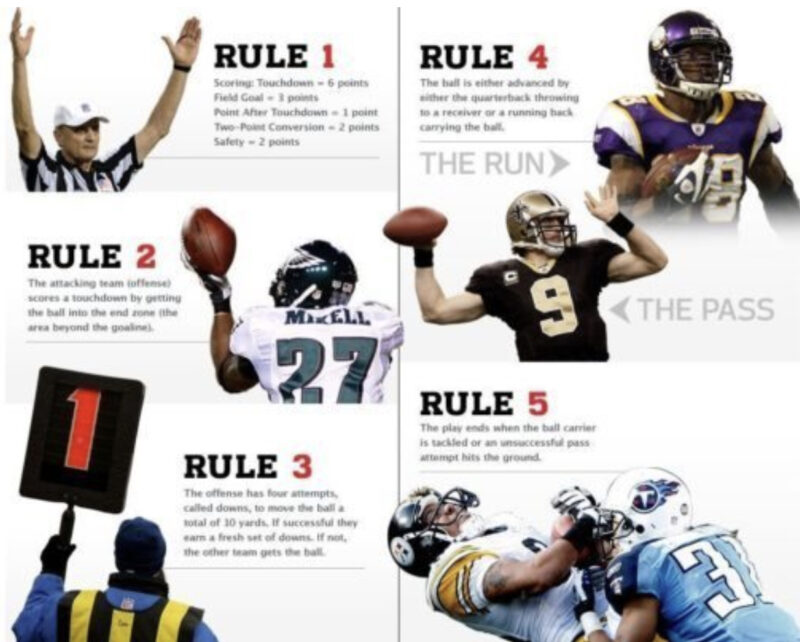
It’s a scenario that occurs every time a field goal or punt is deflected: some players freeze up, unsure of what to do.
Should I pick up the ball and run with it?
Should I just leave it alone?
What happens if the opposing team gets to it first?
Even some NFL players have been caught off guard by certain rules of the game, and they should know better! Just look at Donovan McNabb’s infamous 2008 press conference after the Philadelphia Eagles’ 13-13 tie against the Cincinnati Bengals, where he admitted he had no idea a game could end in a tie. Talk about a major slip-up.
Understanding the rules of football better than your opponent can often make the difference between victory and defeat. Make it a point to study the rules so you’re never caught in a situation like that.
In Europe, most leagues follow NCAA rules, so be sure to consult the latest NCAA Rule Book to fill in any gaps in your knowledge. Remember: knowing the rules means knowing every single one of them.
3. Lift, Lift, Lift
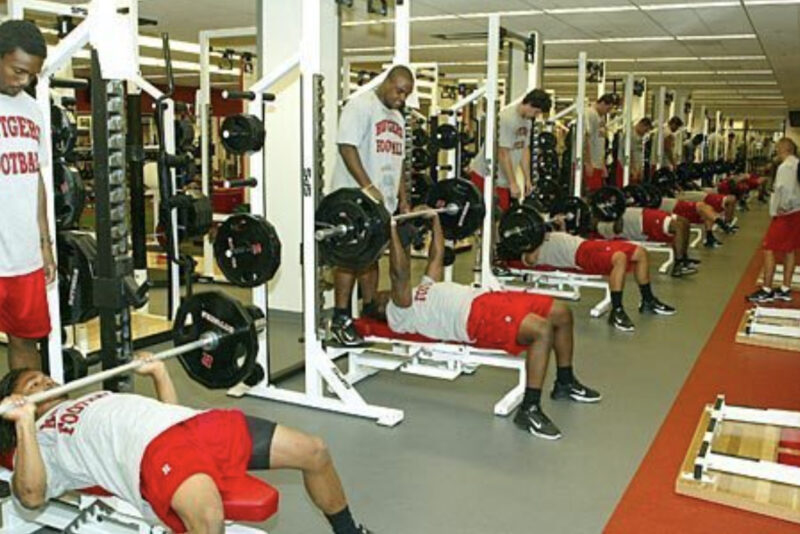
We all know that spending time in the gym helps you get bigger and faster, but remember, the focus should be on strength and mass—not appearance. I’ve played with plenty of guys who looked the part but couldn’t block a defender or make a tackle to save their life. Keep in mind: you’re training for football, not a beauty contest.
Tim Ferriss, author of The 4-Hour Body (Amazon: USA/UK/FR/ES/DE/IT), recommends a concept called the “minimum effective dose.” Instead of doing 4-6 sets of an exercise, he suggests maximizing the effort with one set of 8+ reps until you can’t lift the weight anymore. This approach provides 80 percent of the benefits with only 20 percent of the time and effort.
Establish a solid workout plan and track all the details of your sessions. Keeping track of your progress will not only help you stay on course but also give you a sense of accomplishment each time you reach a personal best. No goal can be achieved without a well-thought-out and realistic plan.
4. Diet
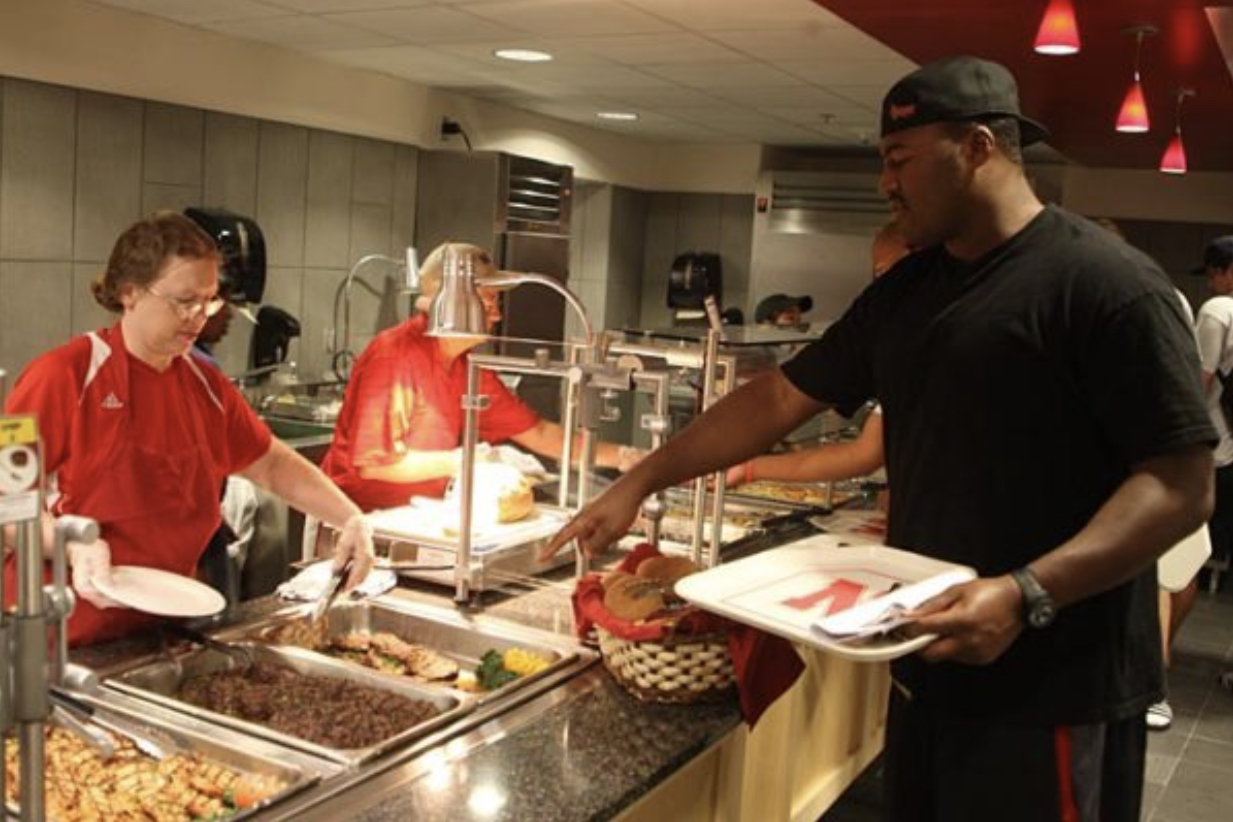
Nutrition experts often estimate that your diet contributes to 80% of muscle growth, while training accounts for just 20%. If you’re not mindful of what you eat, you’re unlikely to achieve the results you desire. Protein is essential for muscle development, and chances are, you’re not consuming enough of it.
Dr. James Meschino, a well-known authority on dietary health and muscle development, recommends a simple formula for calculating your ideal daily protein intake. If you’re moderately active—exercising 5-7 times per week, including weight training 3-4 times a week—multiply your weight in pounds by 0.6 (for kilos, multiply by 1.3) to determine the number of grams of protein you should consume daily. For those engaging in advanced activity, including 5-7 workouts a week with at least one hour of weight training 5+ times a week, multiply your weight by 0.7 (for kilos, multiply by 1.5). Elite-level athletes should multiply their weight in pounds by 0.8 (for kilos, multiply by 1.7) to optimize muscle growth.
Avoid processed foods, excessive caffeine, and sugary snacks. While meat is fine, be mindful that not all meats provide the same protein-to-calorie ratio. Lean meats like chicken and turkey offer more protein with fewer calories, while fatty cuts like beef and pork are higher in calories.
Skill players, such as receivers, running backs, defensive backs, and quarterbacks, should prioritize lean mass (high protein, low calorie), while linemen and linebackers should focus on adding bulk (high protein, high calorie). Tim Ferriss’ The 4-Hour Body (Amazon: USA/UK/FR/ES/DE/IT) is an excellent resource for further guidance.
5. Watch Film

There’s a reason why Peyton Manning is considered one of the best in football. While he may not possess exceptional athleticism, elite speed, or even above-average arm strength compared to quarterbacks like Tom Brady, Drew Brees, or Aaron Rodgers, what sets him apart is his unmatched preparation and football IQ. Much of this comes from the countless hours he spends studying film. Manning analyzes his own game and practice footage, as well as that of his future opponents, making him mentally prepared and often ahead of the competition.
Watching film allows you to learn from your mistakes and gain a fresh perspective on the game. It also gives you the opportunity to discover new techniques and strategies from other players. As Malcolm Gladwell says, “Achievement is talent plus preparation.”
Don’t hesitate to ask your coaches for access to game or practice film so you can evaluate your performance. If your team doesn’t already have a filming strategy, take the initiative to help establish one. Be proactive in improving your game.
6. Position-Specific Training
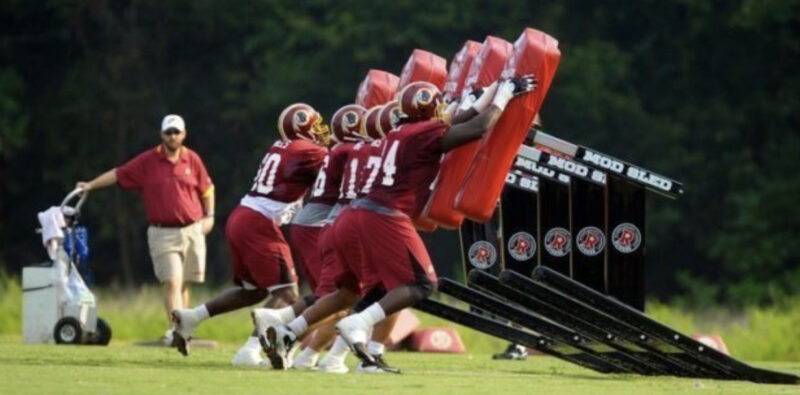
It’s crucial to recognize the specific skill sets that are essential for your position.
For example, if you’re an offensive lineman, attributes like strength, size, toughness, and a team-first mentality are key. On the other hand, if you’re a defensive back, quick feet, speed, good instincts, and the ability to forget mistakes quickly are the most important traits.
Whether you’re hitting the gym or going for a run, tailor your training to enhance these essential skills. Offensive linemen, for instance, rarely run more than 20-30 yards during a play, so long-distance running won’t be as beneficial. Similarly, quarterbacks don’t need to focus on tackling drills since their role doesn’t require those skills on the field.
By concentrating on the skills that matter most for your position, you’ll maximize your training time, minimize the risk of injury, and develop into the best player you can be. Time and effort must be used efficiently to make the greatest impact.
7. Prioritize Your Sleep
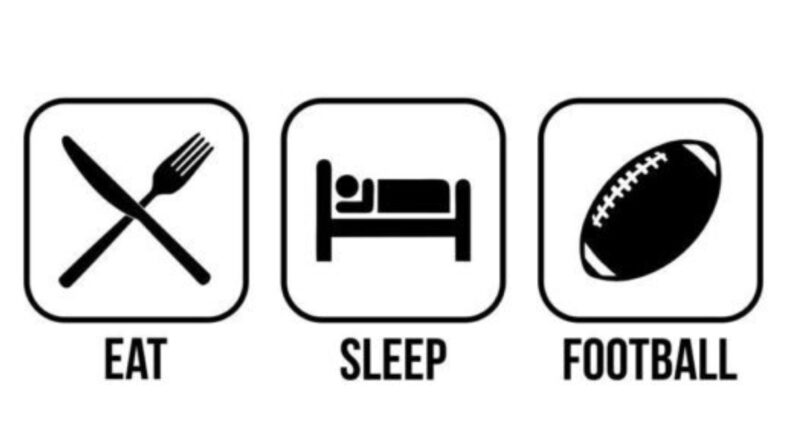
Your body heals up to 90% of its injuries while you sleep, making rest essential, especially during the football season and crucial the night before a game.
Sleep plays a major role in muscle recovery and energy restoration. Alcohol disrupts your sleep cycle and inhibits testosterone production, which is key for muscle growth and recovery. On game day, you need all the testosterone and energy you can get to perform at your best.
Testosterone is synthesized from cholesterol, primarily between 4:00-6:00 AM. By maintaining a consistent sleep schedule and ensuring you get a full night of rest, you’ll allow your body to recover and be energized for the next game.
8. Compete Against Stronger Opponents
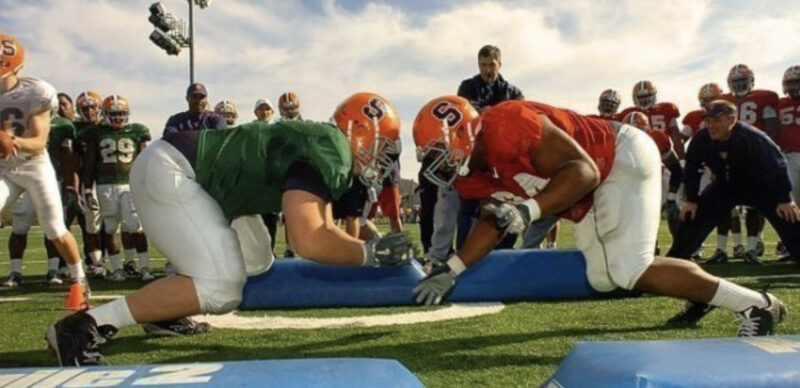
One of the most effective ways to elevate your game is to challenge yourself by competing against better opponents. There are many creative ways to gain this experience.
If you’re a junior, ask your senior head coach if you can attend senior practices. Even just participating at the practice level against players who are bigger, faster, and stronger will push you to raise your skill level. You might also consider joining a team in a higher division within your country or even in another country with a more advanced level of competition. For example, players from countries like the Netherlands, Austria, and Spain often compete in Germany.
For those who want to truly challenge themselves, consider spending a semester or a year in the United States and trying out for the football team at a local school. Regardless of the option, the more you compete against the best, the more your game will improve.
9. Endurance Training

By the 4th quarter, most football players are operating at only 85-90% of their full capacity. Now, imagine if you could maintain 100% throughout the entire game. This would give you a distinct advantage, especially in crunch time when most games are decided. If you’re still performing at peak endurance toward the end of the game, you’re playing at a whole different level than your opponents. This means better focus, your coaches are more likely to trust you in critical moments, and your teammates will look to you for leadership when the game is on the line.
To achieve this, work on getting yourself in game shape by practicing at full speed. The more you practice at game pace, the more your body will be ready for the demands of actual competition. Run extra 40-yard sprints, take more snaps, or run additional routes. The goal is to ensure you’re fully prepared when game day arrives.
10. Get Feedback
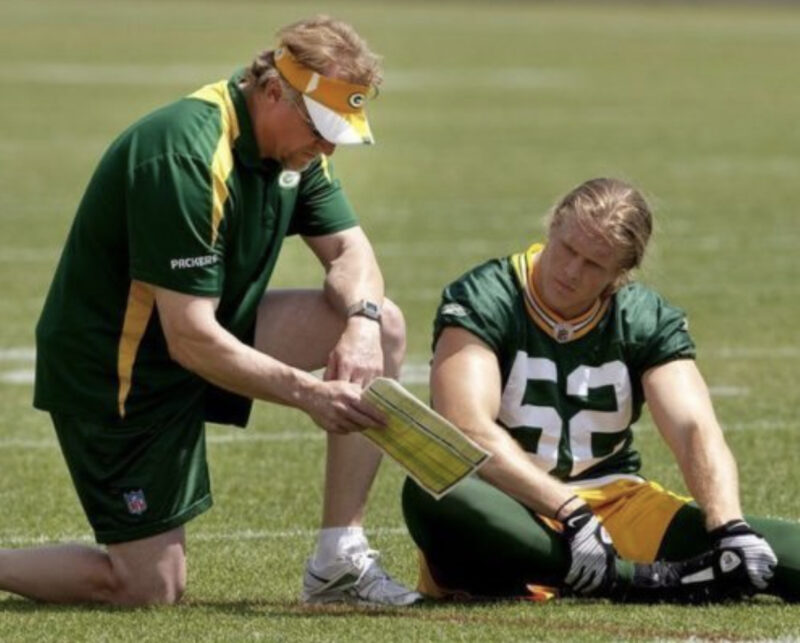
Request feedback from your coaches on your performance.
An objective opinion can reveal things you might not notice. By seeking their insight, you’re demonstrating that you value their perspective and are dedicated to improving as a player. These actions leave a strong impression on coaches. Additionally, you’ll gain valuable knowledge about both the strengths and weaknesses of your game, which will help you build confidence and identify areas for improvement.
What do you think of this list?
Do you have any suggestions or additions to these points, or is there something else you would have included?
Source: https://www.americanfootballinternational.com/10-ways-to-become-a-better-football-player/#google_vignette
